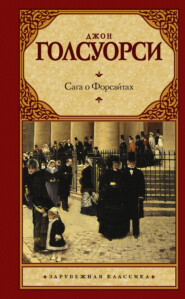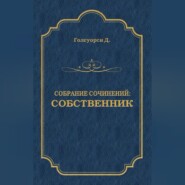По всем вопросам обращайтесь на: info@litportal.ru
(©) 2003-2025.
✖
Saint's Progress
Настройки чтения
Размер шрифта
Высота строк
Поля
“What is it? They’re cheering. Oh! Daddy, look!” There in the heavens, towards the east, hung a dull red thing, lengthening as they gazed.
“They’ve got it. It’s on fire! Hurrah!”
Through the dark firmament that fiery orange shape began canting downward; and the cheering swelled in a savage frenzy of sound. And Pierson’s arm tightened on her waist.
“Thank God!” he muttered.
The bright oblong seemed to break and spread, tilted down below the level of the roofs; and suddenly the heavens flared, as if some huge jug of crimson light had been flung out on them. Something turned over in Pierson’s heart; he flung up his hand to his eyes.
“The poor men in it!” he said. “How terrible!”
Noel’s voice answered, hard and pitiless:
“They needn’t have come. They’re murderers!”
Yes, they were murderers – but how terrible! And he stood quivering, with his hands pressed to his face, till the cheering had died out into silence.
“Let’s pray, Nollie!” he whispered. “O God, Who in Thy great mercy hath delivered us from peril, take into Thy keeping the souls of these our enemies, consumed by Thy wrath before our eyes; give us the power to pity them – men like ourselves.”
But even while he prayed he could see Noel’s face flame-white in the darkness; and, as that glow in the sky faded out, he felt once more the thrill of triumph.
They went down to tell the maids, and for some time after sat up together, talking over what they had seen, eating biscuits and drinking milk, which they warmed on an etna. It was nearly two o’clock before they went to bed. Pierson fell asleep at once, and never turned till awakened at half-past six by his alarum. He had Holy Communion to administer at eight, and he hurried to get early to his church and see that nothing untoward had happened to it. There it stood in the sunlight; tall, grey, quiet, unharmed, with bell gently ringing.
3
And at that hour Cyril Morland, under the parapet of his trench, tightening his belt, was looking at his wrist-watch for the hundredth time, calculating exactly where he meant to put foot and hand for the going over: ‘I absolutely mustn’t let those chaps get in front of me,’ he thought. So many yards before the first line of trenches, so many yards to the second line, and there stop. So his rehearsals had gone; it was the performance now! Another minute before the terrific racket of the drum-fire should become the curtain-fire, which would advance before them. He ran his eye down the trench. The man next him was licking his two first fingers, as if he might be going to bowl at cricket. Further down, a man was feeling his puttees. A voice said: “Wot price the orchestra nah!” He saw teeth gleam in faces burnt almost black. Then he looked up; the sky was blue beyond the brownish film of dust raised by the striking shells. Noel! Noel! Noel!.. He dug his fingers deep into the left side of his tunic till he could feel the outline of her photograph between his dispatch-case and his heart. His heart fluttered just as it used when he was stretched out with hand touching the ground, before the start of the “hundred yards” at school. Out of the corner of his eye he caught the flash of a man’s “briquet” lighting a cigarette. All right for those chaps, but not for him; he wanted all his breath – this rifle, and kit were handicap enough! Two days ago he had been reading in some paper how men felt just before an attack. And now he knew. He just felt nervous. If only the moment would come, and get itself over! For all the thought he gave to the enemy there might have been none – nothing but shells and bullets, with lives of their own. He heard the whistle; his foot was on the spot he had marked down; his hand where he had seen it; he called out: “Now, boys!” His head was over the top, his body over; he was conscious of someone falling, and two men neck and neck beside him. Not to try and run, not to break out of a walk; to go steady, and yet keep ahead! D – n these holes! A bullet tore through his sleeve, grazing his arm – a red-hot sensation, like the touch of an iron. A British shell from close over his head burst sixty yards ahead; he stumbled, fell flat, picked himself up. Three ahead of him now! He walked faster, and drew alongside. Two of them fell. ‘What luck!’ he thought; and gripping his rifle harder, pitched headlong into a declivity. Dead bodies lay there! The first German trench line, and nothing alive in it, nothing to clean up, nothing of it left! He stopped, getting his wind; watching the men panting and stumbling in. The roar of the guns was louder than ever again, barraging the second line. So far, good! And here was his captain!
“Ready, boys? On, then!”
This time he moved more slowly still, over terrible going, all holes and hummocks. Half consciously he took cover all he could. The air was alive with the whistle from machine-gun fire storming across zigzag fashion-alive it was with bullets, dust, and smoke. ‘How shall I tell her?’ he thought. There would be nothing to tell but just a sort of jagged brown sensation. He kept his eyes steadily before him, not wanting to seethe men falling, not wanting anything to divert him from getting there. He felt the faint fanning of the passing bullets. The second line must be close now. Why didn’t that barrage lift? Was this new dodge of firing till the last second going to do them in? Another hundred yards and he would be bang into it. He flung himself flat and waited; looking at his wrist-watch he noted that his arm was soaked with blood. He thought: ‘A wound! Now I shall go home. Thank God! Oh, Noel!’ The passing bullets whirled above him; he could hear them even through the screech and thunder of the shell-fire. ‘The beastly things!’ he thought: A voice beside him gasped out:
“It’s lifted, sir.”
He called: “Come on, boys!” and went forward, stooping. A bullet struck his rifle. The shock made him stagger and sent an electric shock spinning up his arm. ‘Luck again!’ he thought. ‘Now for it! I haven’t seen a German yet!’ He leaped forward, spun round, flung up his arms, and fell on his back, shot through and through…
The position was consolidated, as they say, and in the darkness stretcher-bearers were out over the half-mile. Like will-o’-the-wisps, with their shaded lanterns, they moved, hour after hour, slowly quartering the black honeycomb which lay behind the new British line. Now and then in the light of some star-shell their figures were disclosed, bending and raising the forms of the wounded, or wielding pick and shovel.
“Officer.”
“Dead?”
“Sure.”
“Search.”
From the shaded lantern, lowered to just above the body, a yellowish glare fell on face and breast. The hands of the searcher moved in that little pool of light. The bearer who was taking notes bent down.
“Another boy,” he said. “That all he has?”
The searcher raised himself.
“Just those, and a photo.”
“Dispatch-case; pound loose; cigarette-case; wristwatch; photo. Let’s see it.”
The searcher placed the photo in the pool of light. The tiny face of a girl stared up at them, unmoved, from its short hair.
“Noel,” said the searcher, reading.
“H’m! Take care of it. Stick it in his case. Come on!”
The pool of light dissolved, and darkness for ever covered Cyril Morland.
II
When those four took their seats in the Grand Circle at Queen’s Hall the programme was already at the second number, which, in spite of all the efforts of patriotism, was of German origin – a Brandenburg concerto by Bach. More curious still, it was encored. Pierson did not applaud, he was too far gone in pleasure, and sat with a rapt smile on his face, oblivious of his surroundings. He remained thus removed from mortal joys and sorrows till the last applause had died away, and Leila’s voice said in his ear:
“Isn’t it a wonderful audience, Edward? Look at all that khaki. Who’d have thought those young men cared for music – good music – German music, too?”
Pierson looked down at the patient mass of standing figures in straw hats and military caps, with faces turned all one way, and sighed.
“I wish I could get an audience like that in my church.”
A smile crept out at the corner of Leila’s lips. She was thinking: ‘Ah! Your Church is out of date, my dear, and so are you! Your Church, with its smell of mould and incense, its stained-glass, and narrowed length and droning organ. Poor Edward, so out of the world!’ But she only pressed his arm, and whispered:
“Look at Noel!”
The girl was talking to Jimmy Fort. Her cheeks were gushed, and she looked prettier than Pierson had seen her look for a long time now, ever since Kestrel, indeed. He heard Leila sigh.
“Does she get news of her boy? Do you remember that May Week, Edward? We were very young then; even you were young. That was such a pretty little letter you wrote me. I can see you still-wandering in your dress clothes along the river, among the ‘holy’ cows.”
But her eyes slid round again, watching her other neighbour and the girl. A violinist had begun to play the Cesar Franck Sonata. It was Pierson’s favourite piece of music, bringing him, as it were, a view of heaven, of devotional blue air where devout stars were shining in a sunlit noon, above ecstatic trees and waters where ecstatic swans were swimming.
“Queer world, Mr. Pierson! Fancy those boys having to go back to barrack life after listening to that! What’s your feeling? Are we moving back to the apes? Did we touch top note with that Sonata?”
Pierson turned and contemplated his questioner shrewdly.
“No, Captain Fort, I do not think we are moving back to the apes; if we ever came from them. Those boys have the souls of heroes!”
“I know that, sir, perhaps better than you do.”
“Ah! yes,” said Pierson humbly, “I forgot, of course.” But he still looked at his neighbour doubtfully. This Captain Fort, who was a friend of Leila’s, and who had twice been to see them, puzzled him. He had a frank face, a frank voice, but queer opinions, or so it seemed to, Pierson – little bits of Moslemism, little bits of the backwoods, and the veldt; queer unexpected cynicisms, all sorts of side views on England had lodged in him, and he did not hide them. They came from him like bullets, in that frank voice, and drilled little holes in the listener. Those critical sayings flew so much more poignantly from one who had been through the same educational mill as himself, than if they had merely come from some rough diamond, some artist, some foreigner, even from a doctor like George. And they always made him uncomfortable, like the touch of a prickly leaf; they did not amuse him. Certainly Edward Pierson shrank from the rough touches of a knock-about philosophy. After all, it was but natural that he should.
He and Noel left after the first part of the concert, parting from the other two at the door. He slipped his hand through her arm; and, following out those thoughts of his in the concert-hall, asked:
“Do you like Captain Fort, Nollie?”
“Yes; he’s a nice man.”

















